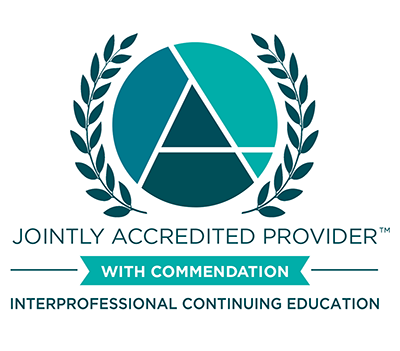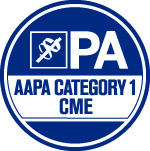WMJ Vol 122 Issue 5: COVID-19 Vaccination Telephone Outreach: A Primary Care Clinic Intervention Targeting Health Equity
ABSTRACT
Introduction: Equitable COVID-19 vaccine access is essential to ending the COVID-19 pandemic. In many instances, COVID-19 vaccination notification and scheduling occurred through online patient portals, for which socially vulnerable populations have limited access. Our objective was to reduce disparities in COVID-19 vaccine access for the Black and socially vulnerable populations unintentionally excluded by our health system’s patient portal-driven vaccine outreach through a telephone outreach initiative.
Methods: From February 1, 2021, through April 27, 2021, telephone outreach was directed towards patients aged 65 and older without patient portal access at a large urban academic general internal medicine clinic. Univariate and multivariate analyses between those who did and did not receive telephone outreach were completed to assess the odds of vaccination, accounting for outreach status, sex, age, race/ethnicity, payor status, social vulnerability index, and Elixhauser Comorbidity count.
Results: A total of 1466 patients aged 65 and older without active patient portals were eligible to receive the COVID-19 vaccine. Of these patients, 664 received outreach calls; 382 (57.5%) of them got vaccinated compared to 802 patients who did not receive outreach calls, of which 486 (60.6%) got vaccinated (P = 0.2341). Patients who received outreach calls versus those who did not were more likely to be female, younger, non-Hispanic Black, from high social vulnerability index census tracts, and have higher Elixhauser Comorbidity counts. Logistical analysis revealed an odds ratio (OR) with a nonstatistically significant trend favoring higher vaccination likelihood in the no outreach cohort with univariate analysis with no changes when adjustment was made for age, sex, race/ethnicity, payor, social vulnerability index, and Elixhauser Comorbidity count (univariate analysis: OR 0.88 [95% CI, 0.71-1.09]; model 1: OR 0.89 [95% CI, 0.72 – 1.10]; model 2 – 0.89 (0.72 – 1.11); model 3: OR 0.87 (95% CI, 0.70 -1.09)].
Conclusions: While our telephone outreach initiative was not successful in increasing vaccination rates, lessons learned can help clinicians and health systems as they work to improve health equity. Achieving health equity requires a multifaceted approach engaging not only health systems but also public health and community systems to directly address the pervasive effects of structural racism perpetuating health inequities.
Intended Audience
The target audience for this journal-based activity is healthcare providers caring for the people and communities of Wisconsin and beyond.
Learning Objectives
As a result of this journal-based activity, learners, as members of the healthcare team, will be able to:
- Discuss disparities in adult immunization and their causes.
- Describe a COVID-19 vaccination telephone outreach intervention and difficulty improving vaccine uptake outcomes.
- Elaborate on opportunities to support equitable access to vaccination in the learner’s healthcare practice.
FACULTY DISCLOSURE
It is the policy of the University of Wisconsin–Madison Interprofessional Continuing Education Partnership (ICEP) to identify, mitigate and disclose all relevant financial relationships with ineligible companies* held by the speakers/presenters, authors, planners, and other persons who may influence the content of this accredited continuing education (CE). In addition, speakers, presenters and authors must disclose any planned discussion of unlabeled/unapproved uses of drugs or devices during their presentation.
For this accredited continuing education activity all relevant financial relationships have been mitigated and detailed disclosures are listed below.
| Name of Individual | Individual's Role in Activity | Financial Relationship Disclosure | Discussion of |
| James F. Wu, MD | Author | No relevant relationships with ineligible companies to disclose | No |
| Martin D. Muntz, MD | Author | No relevant relationships with ineligible companies to disclose | No |
| Ann Maguire, MD, MPH | Author | No relevant relationships with ineligible companies to disclose | No |
| Anna Beckius, BS | Author | No relevant relationships with ineligible companies to disclose | No |
| Mandy Kastner, MPH | Author | No relevant relationships with ineligible companies to disclose | No |
| Brian Hilgeman, MD | Author | No relevant relationships with ineligible companies to disclose | |
| Quratul Aziz, MD | Reviewer | No relevant relationships with ineligible companies to disclose | No |
| Patrick L. Remington, MD, MPH | Reviewer | No relevant relationships with ineligible companies to disclose | No |
| George "Chip" Morris, III, MD | Reviewer | No relevant relationships with ineligible companies to disclose | No |
| Fahad Aziz, MD | Editor | No relevant relationships with ineligible companies to disclose | No |
| David Dwyer | Reviewer | No relevant relationships with ineligible companies to disclose | No |
| Cassie Meffert | Reviewer | No relevant relationships with ineligible companies to disclose | No |
| Babak Tehrani | Reviewer | No relevant relationships with ineligible companies to disclose | No |
| Shezad Baloch | Accreditation Specialist | No relevant relationships with ineligible companies to disclose | No |
*Ineligible companies are those whose primary business is producing, marketing, selling, re-selling, or distributing healthcare products used by or on, patients.
The ACCME does not consider providers of clinical services directly to patients to be ineligible companies.
Accreditation
Accreditation Statement
 | In support of improving patient care, this activity has been planned and implemented by the University of Wisconsin–Madison ICEP and the Wisconsin Medical Journal. The University of Wisconsin–Madison ICEP is jointly accredited by the Accreditation Council for Continuing Medical Education (ACCME), the Accreditation Council for Pharmacy Education (ACPE), and the American Nurses Credentialing Center (ANCC), to provide continuing education for the healthcare team. |
Credit Designation Statements
American Medical Association (AMA)
The University of Wisconsin–Madison ICEP designates this journal-based CE activity for a maximum of 1.0 AMA PRA Category 1 Credit™. Physicians should claim only the credit commensurate with the extent of their participation in the activity.
American Nurses Credentialing Center (ANCC)
The University of Wisconsin–Madison ICEP designates this journal-based CE activity for a maximum of 1.0 ANCC contact hours.
Accreditation Council for Pharmacy Education (ACPE)
The University of Wisconsin–Madison ICEP designates this activity for a maximum of 1.0 hours or 0.1 CEUs. Credit can be earned by documented attendance during the session. Credit will be provided to NABP CPE Monitor within 60 days after the activity completion.
UAN: JA0000358-9999-24-076-H04-P
 | The University of Wisconsin–Madison ICEP has been authorized by the American Academy of PAs (AAPA) to award AAPA Category 1 CME credit for activities planned in accordance with AAPA CME Criteria. This activity is designated for 1 AAPA Category 1 CME credits. Approval is valid until 10/17/2025. PAs should only claim credit commensurate with the extent of their participation. |
Continuing Education Units
The University of Wisconsin–Madison ICEP, as a member of the University Professional & Continuing Education Association (UPCEA), authorizes this program for 0.1 continuing education units (CEUs) or 1 hour.
Available Credit
- 1.00 AAPA Category 1 CME
- 1.00 ACPE Contact Hours - Pharmacist
- 1.00 AMA PRA Category 1 Credit™
- 1.00 ANCC Contact Hours
- 1.00 University of Wisconsin–Madison Continuing Education Hours
- 1.00 Approved for AMA PRA Category 1 Credit™
Registration for this activity can only be completed through the ICEP Learning Portal. Attendee registrations made through any other sites cannot be honored. UW-Madison ICEP is not able to refund fees paid through unaffiliated registration sites, such as eMedEvents.com, MedConfWorld.com, EventEgg.com, and 10times.com. Please report any unauthorized websites or solicitations for registrations to [email protected].
Accessibility
If you need anything to participate in this program, please contact [email protected].
Required Hardware/software
Free, current version of Chrome, Firefox, Safari, or Edge. Some older browsers and Microsoft Internet Explorer could produce error messages or not display the content correctly.
Free, current version of Adobe Acrobat Reader or other .pdf reader.

 Facebook
Facebook X
X LinkedIn
LinkedIn Forward
Forward